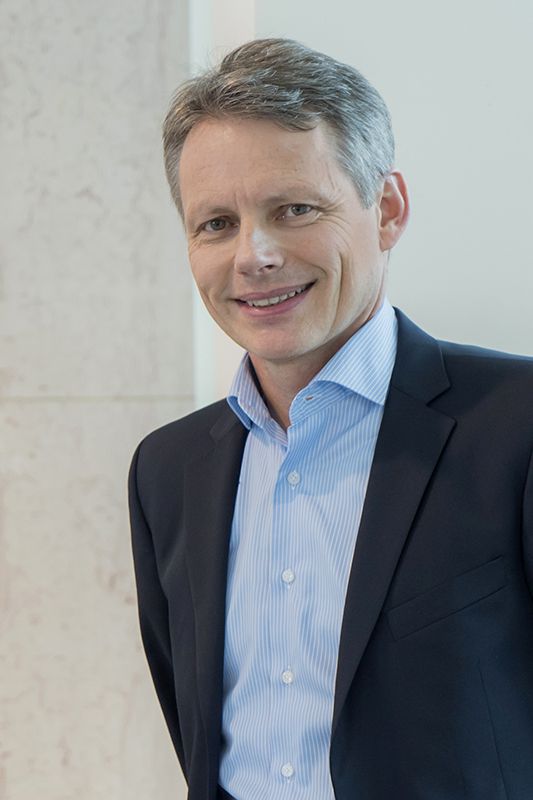[Article series] The experts behind Luxembourg’s Covid-19 fight
Interview with Prof Markus Ollert
Prof Markus Ollert (MO) is the Director of the LIH Department of Infection and Immunity. As a medical doctor and researcher, he exemplifies the “clinician scientist” profile, bringing both his healthcare and research experience to the table in order to unravel the processes underlying the onset of immune-related diseases. In the context of the COVID-19 pandemic, Prof Ollert and his team are currently involved in supporting the diagnostic capacity of hospitals and routine clinical laboratories to test for the SARS-CoV-2 virus, as well as contributing to the development of a large-scale testing strategy for Luxembourg. In this short interview, he discusses his expertise and participation in ongoing COVID-19 projects.
Prof Ollert, could you tell us more about your background and expertise?
MO: I am a physician by training and have obtained board-certifications in Dermatology and in Allergology in Germany. As such, I have regularly treated patients suffering from viral and bacterial skin infections, as well as immune-related skin disorders. Prior to joining LIH, I was also Professor of Molecular Dermatology and Immunology and Vice Chair of the Clinical Department of Dermatology and Allergy at the Technical University of Munich. I have therefore developed a strong expertise in both the clinical and research aspects of immunology. At LIH, my research focuses specifically on the role of the immune system in the onset of cancer, autoimmune and allergic diseases.
How is your expertise relevant in the current COVID-19 context?
MO: My experience in working with viral, bacterial and immune-related diseases from a clinical and research angle is certainly an added value in the current COVID-19 situation. Indeed, the poor outcomes observed in some COVID-19 patients are attributable to dysfunctions taking place at the immune system level. Understanding the reasons why the immune system of different patients reacts in such a divergent way is therefore the key to mitigating the outcome of the disease and improving treatment options for patients. Moreover, my expertise in running clinical routine laboratories, which I have done for many years in my previous positions, is certainly an asset in the framework of the measures being developed to address the pandemic.
What is your specific role in the ongoing COVID-19 initiatives of the Research Luxembourg taskforce?
MO: I am currently leading a work package dedicated to creating additional diagnostic capacity at LIH, with the goal of supporting clinical and population-based studies on COVID-19 and Luxembourg’s healthcare providers in testing and diagnosing a growing number of potentially infected patients, should they reach the limit of their capacities. Numerous activities are foreseen under this work package. First of all, we are working on setting up a diagnostic lab at LIH where virologists and volunteers are developing novel and extremely sensitive PCR assays to screen patient samples for the SARS-CoV-2 virus. A second aspect is the validation and testing of a so-called serological immunoassay, a type of analysis that aims to detect and measure the presence of antibodies against the virus in the blood. This will provide indications as to who has been exposed to the virus and developed antibodies in response to it. A third activity of the work package will be to subsequently verify whether serum containing these antibodies can effectively neutralise the virus. Finally, we aim to test a selection of drugs commonly used for other diseases on the specific SARS-CoV-2 virus present in a given patient, in order to observe which therapeutic molecule the virus responds to and therefore provide doctors with a personalised treatment plan for each individual patient. An ambitious work plan!
Could you tell us more about your collaborators at LIH and their roles?
MO: The diversity of the tasks foreseen under this work package requires a variety of different but complementary technologies, skills and expertise. For this reason, we boast a highly interdisciplinary team at the LIH Department of Infection and Immunity. Specifically, Dr Chantal Snoeck, scientist within the Clinical and Applied Virology research group, is leading the setup of the diagnostic research lab at LIH and the development of the new diagnostic assay, in collaboration with other Luxembourgish partners. Dr Christiane Hilger and Dr Annette Kühn from the Molecular and Translational Allergology research group, Dr Andy Chevigné from the Immuno-Pharmacology and Interactomics group and Dr Judith Hübschen from the Clinical and Applied Virology group are working on the serological immunoassay and on the recombinant expression and production of antigens from SARS-CoV-2, which are crucial components for us to map the immune responses against the new virus. Dr Danielle Perez–Bercoff is directing the setup of the virus neutralisation test, while Dr Carole Devaux, leader of the HIV Clinical and Translational Research group, is leading the personalised antiviral profiling task. Finally, I have fantastic support from the two work package assistants, Dr. Cathy Leonard, Scientist in the Allergy and Clinical Immunology Group, and Erica Grant, PhD candidate in the Eco-Immunology and Microbiome Group. A true collaborative effort in order to generate real benefits for Luxembourg and for our patients.

